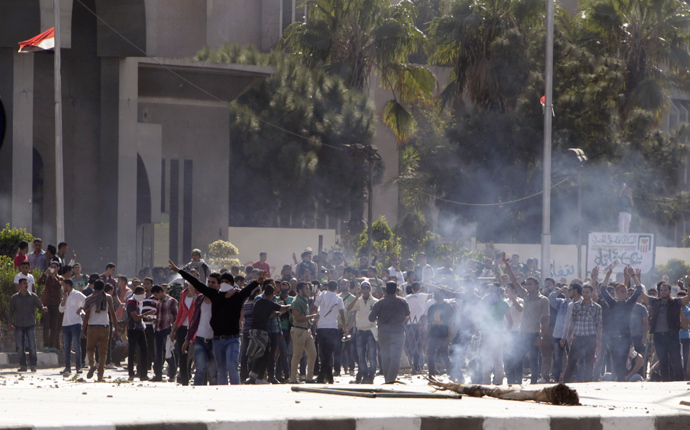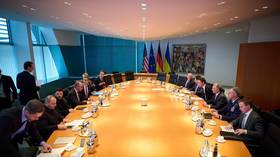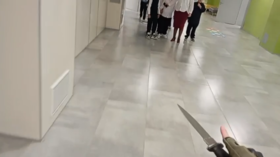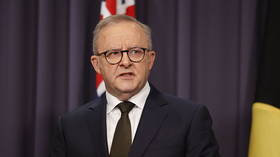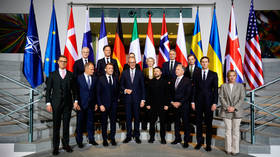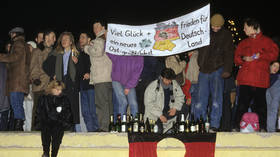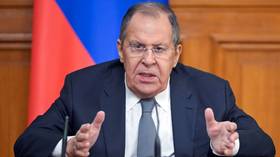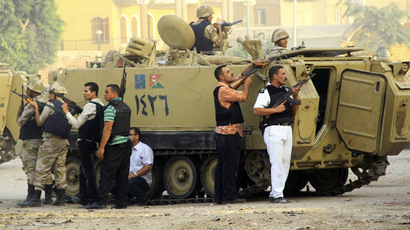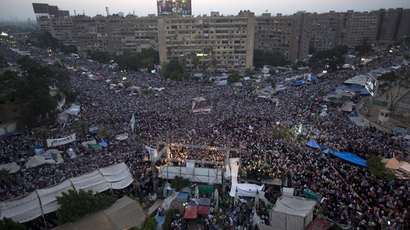Egyptian police fire tear gas to disperse pro-Morsi student protesters (PHOTOS)
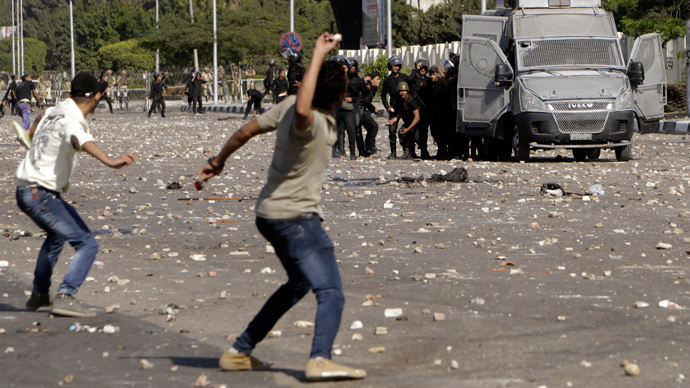
Egyptian police fired tear gas at participants of a pro-Morsi student demonstration as they rallied and tried to march to a protest camp at Cairo’s Rabaa Square, which security forces cleared in mid-August.
A crowd of students, mostly from Al-Azhar University, started
their protest with an on-campus march.
Demonstrators hurled stones at the administrator’s offices,
smashing windows and breaking doors, said Ibrahim el-Houdhoud,
deputy head of the university. He warned students against leaving
campus and clashing with security forces, according to Al-Jazeera
Mubasher Misr.
Protesters ignored warnings to stay on campus, instead choosing
to move out of the main gates to hold what they said were
“prayers for the dead” to honor fellow students who died
in July clashes with security forces.
Students cut off a main road in Cairo outside a prestigious
Muslim institution and started throwing stones at officers
positioned outside the gates. Police responded by hurling rocks
at demonstrators.
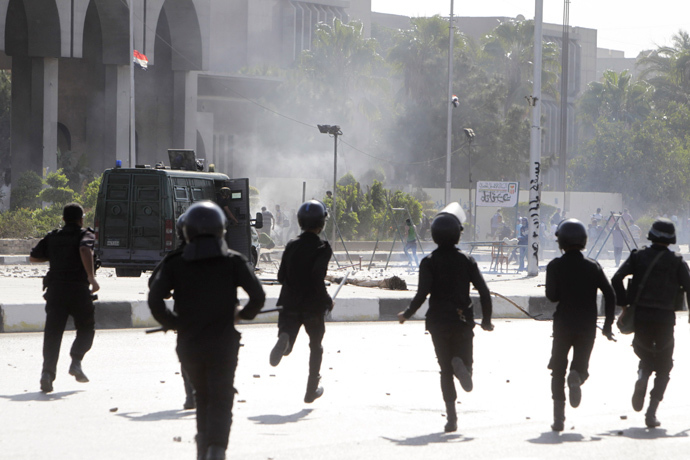
Some of the students were trying to reach Rabaa Square but were
cut off by security forces, a witness told Reuters.
The Interior Ministry has confirmed that riot police took action
after 3,000 students blocked roads around the Al-Azhar campus.
The university is located close to Rabaa Square, where Muslim
Brotherhood supporters previously set up a sit-in camp which
security forces raided and destroyed in August. The raid sparked
days of violent protests.
"Rabaa Square is completely off-limits," a security source
said. "Protesters are not allowed to move inside it."
According a separate source, 11 students were arrested during
Sunday’s incident.
"We want the return of legitimate rule to Egypt, we want the
return of President Morsi," one of the students said. "We
are unarmed students. We just approached them and said 'you are
our police' and then they attacked us."
Sunday's clashes marked the second day of unrest at Al-Azhar
University - the most prominent center for Sunni Muslim learning
and a stronghold of the Muslim Brotherhood.
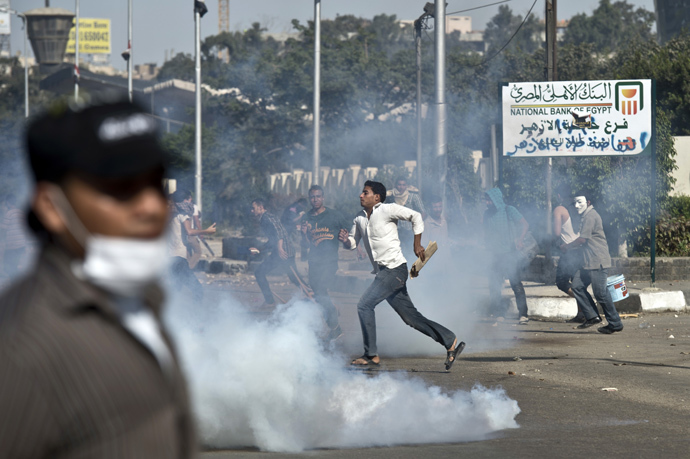
"We will take measures to continue studies even with the
continuation of the demonstrations," el-Houdhoud said.
Egypt has been facing a new wave of violent protests over the
past month. On October 6, at least 53 people were killed and over
200 wounded in clashes between police and supporters of ousted
President Mohammed Morsi.
Almost four months after the military overthrew democratically
elected Morsi, the country remains divided. Non-stop
demonstrations are being held by supporters who demand his
return.
The July coup was followed by a harsh crackdown on Morsi’s Muslim
Brotherhood movement, along with arrests of its leaders and other
officials. They have been imprisoned and face trial next month.
The former Egyptian leader is also facing trial for inciting the
murders of protesters outside the Presidential Palace in Cairo in
December 2012, when at least 12 people were killed in clashes.
Egypt’s new rulers also accuse Morsi of conspiring with
Palestinian Islamist movement Hamas and plotting to attack police
stations during the revolution which overthrew his predecessor,
Hosni Mubarak, two years ago.
